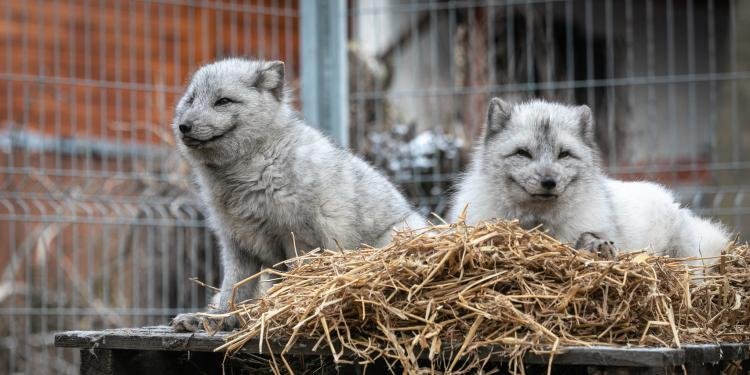Dolce & Gabbana Becomes the Latest Fashion House to Ditch Animal Fur
The luxury brand will stop using animal fur in its collections starting this year in favor of ethical and eco-conscious alternatives.
Photo: Andrew Skowron/Otwarte Klatki
Luxury group Dolce & Gabbana has announced that it will no longer use fur in all its collections starting in 2022. The news comes just days after fellow Italian brand Moncler announced a similar ban on fur in all its collections starting from 2024.
In an effort to preserve jobs, Dolce & Gabbana will continue to collaborate with fur artisans in the creation of eco-fur, a sustainable faux fur alternative that uses recycled and recyclable materials, the fashion brand said in a statement.
“Dolce & Gabbana is working towards a more sustainable future that can’t contemplate the use of animal fur,” said Fedele Usai, a group communication officer at Dolce & Gabbana. “The entire fashion system has a significant social responsibility role that must be promoted and encouraged: we will integrate innovative materials into our Collections and develop environmentally friendly production processes, while at the same time preserve artisans’ jobs and know-how otherwise in danger of fading.”
The new policy is by the Humane Society of the United States and Humane Society International.
“We applaud Dolce & Gabbana’s decision to stop using animal fur. Ending the use of fur creates a higher standard for what is acceptable in fashion, and we’re so excited to have Dolce & Gabbana, and so many others, embrace a better, more innovative path forward". - PJ Smith, Fashion Policy Director at Humane Society of the United States and Humane Society International
With other luxury brands ditching fur over the last few years, Dolce & Gabbana has faced growing pressure to ban animal fur from its collections. Animal rights group, People for the Ethical Treatment of Animals (PETA), which has long staged protests outside several of the fashion house’s stores, applauded Dolce & Gabbana’s decision as "compassionate and business-savvy."
It is estimated that more than 100 million animals are killed for their fur every year as part of the global fur trade, including coyotes, minks, raccoon dogs, and chinchillas. Investigations into the fur trade have repeatedly revealed immense animal suffering and neglect. Animals are typically kept in cramped, conditions, where cannibalism and neurotic behavior is not uncommon. To harvest their fur, the animals are bludgeoned, skinned alive, electrocuted, or gassed. The trade is also detrimental to the environment, associated with water pollution, land degradation, and greenhouse gas emissions.
But, due to heightened awareness of these issues and falling consumer demand, the end of the fur industry could be in sight.
California became the first U.S. state to ban the sale of fur back in 2019, and an overwhelming number of fashion designers, brands, and retailers have also dropped fur, with prominent names including Gucci, Versace and Prada, Burberry, Vivienne Westwood, Alexander McQueen, Donna Karan, DKNY and Michael Kors, as well as Jean Paul Gaultier and Balenciaga. The former CEO of the Fur Trade Association has also denounced the fur trade as “indefensible”.
“The amount of companies going fur-free in the last year is staggering,” says Smith. “The majority of luxury brands are fur-free now, with very few left selling fur. The elephant in the room is LVMH.
“There’s competition among brands now as to who is the best on animal welfare,” Smith continued. “Companies are starting to see that they can do well by doing good. They might ban fur first and take additional steps in the future, phasing out exotic skins, angora and down, while investing in next-generation plant-based materials like mycelium.”
More stories:
Species Unite
A collection of stories of those who fight the good fight on behalf of animals.




Leather, wool, feathers: even if they were by-products, would that make a difference?